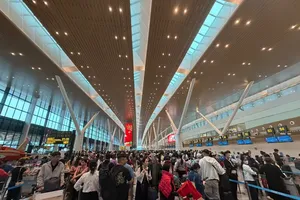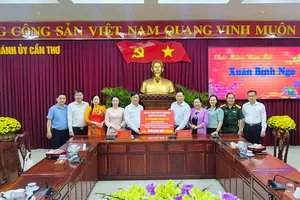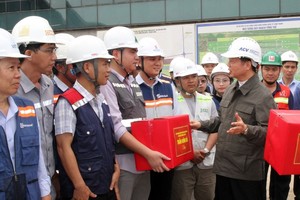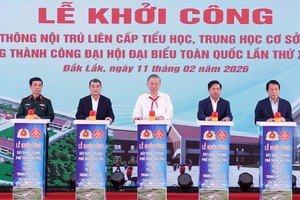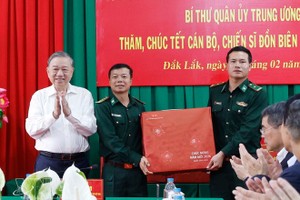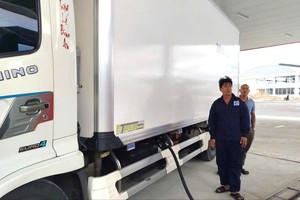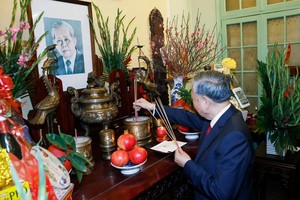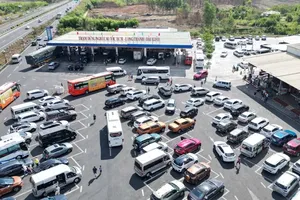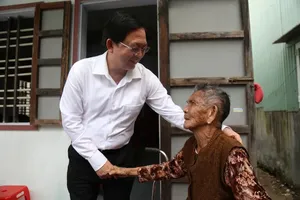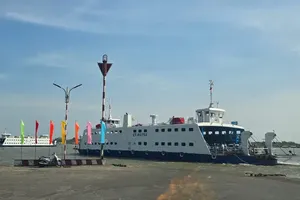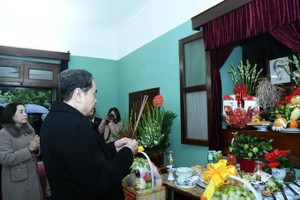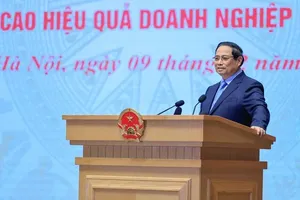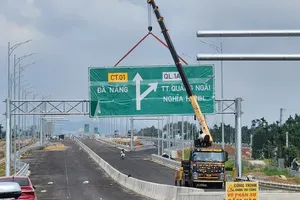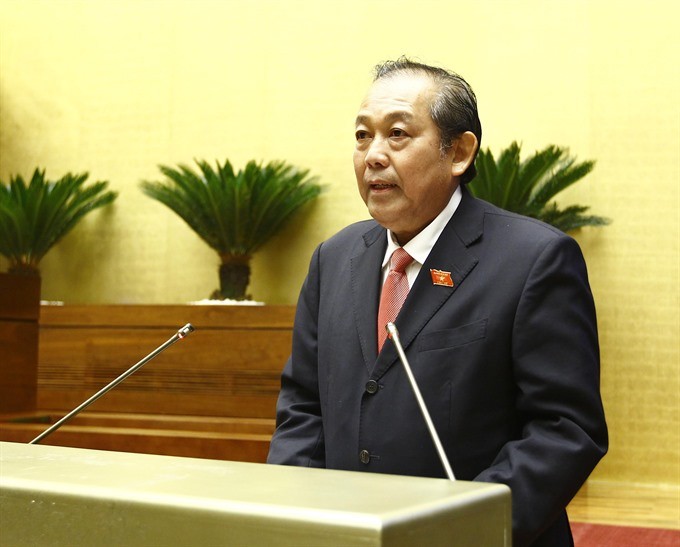
He was answering a question posed by National Assembly deputy Tran Van Tien of the northern province of Vinh Phuc at a Q&A session on Thursday afternoon.
Deputy Tien referred to a report published last year that said five projects operated by State corporations and groups hadn’t gained positive results. He also noted that the Government’s steering committee handling inefficient projects had earlier this year identified 12 other major projects that were suffering huge losses.
“How many more projects are operating poorly, and what are the solutions planned for them?” he asked.
Deputy Prime Minister Binh said the Government has asked relevant ministries and localities to report on the projects that were not operating properly.
“The Government is working on these projects to make sure that those causing huge loss would be dealt with appropriately. The Stage budget will not be used to settle these problems,” he said, adding that disciplinary measures in accordance with the law will be considered against individuals and organisations involved in the poorly operating projects.
In case there were other, similar inefficient projects, the measures applied would be the same as those dealing with the 12 already mentioned, Binh added.
The 12 failing projects include: the Dinh Vu Polyester Fibre Plant, with an investment of VND7 trillion (US$311 million) by the PetroVietnam Petrochemical and Textile Fibre Company; the VND2.2 trillion Dung Quat Bio-Ethanol Plant by PetroVietnam Central Biofuels JSC; Phase 2 of Thai Nguyen Iron and Steel Corporation’s (TISCO) production expansion project with a capital of VND8 trillion; the Phuong Nam Paper Mill and the Ninh Binh Fertiliser Plant.
Nepotism, ignorance
Deputy Pham Minh Hien of Phu Yen Province raised the issue of nepotism among Government agencies, saying that many high ranking officials have taken advantage of their position to create favourable conditions for their relatives to hold important titles in State agencies.
“Does the Government still need the trust of the people?” she asked.
Deputy PM Binh responded that the Prime Minister has asked the Ministry of Home Affairs to investigate media reports of violations in the appointment of personnel in some localities.
The Prime Minister had also asked relevant localities to strictly address these violations, revoke illegal documents and dismiss relevant staff, he said.
Binh said further that the PM’s orders stem from a determination to build a Government of integrity.
He added that the report by the Government clearly stated that in nine localities, there were 58 cases in which relatives of standing officials were appointed, and in 10 of these, procedures and criteria had been violated.
Deputy Nguyen Mai Hoa of Nghe An province asked the Deputy Prime Minister about officials’ tendency to focus only on their current term when working.
“The matter of “thinking only about the current term” is popular among many standing officials – this leads to many weaknesses in management and investment resources. How can we avoid this?” she asked.
Binh agreed, saying that many officials stopped exerting all their effort as the end of their terms neared.
“The Government would try to improve institutional building. Meanwhile, each official has to be wholeheartedly devoted his or her job and have to be willing to be held responsible by the people; those who only think about their terms do not deserve their positions,” Binh said.
Teachers’ concerns
Deputy Nguyen Thi Kim Be of Kien Giang Province raised many concerns shared by teachers across the country.
“Many teachers are worried about the Ministry of Education and Training’s proposal to drop permanent contracts and would pilot the issuance of fixed-term labour instead,” she said.
Bình said the idea was only a proposal and not yet official, and the Government would need more time to consider it.
Deputy Ngo Duy Hieu of Hanoi asked about solutions to deal with traffic congestion in big cities, touching upon the progress of an earlier proposal to move administrative bodies and schools to suburban areas.
“The idea to move State headquarters, schools and hospitals out of the city’s centre was a proper proposal, but it will need time to realise. The possible solution at the moment is to build a synchronised plan for infrastructure and urban development.
“High-rise buildings have to have proper infrastructure – we can’t build a mega mall and high-rise building in the centre of the city when there’s no infrastructure for them,” Binh said, adding that there must be also satellite urban areas and connecting belt roads to deal with traffic jams.
Deputy PM Binh also answered questions regarding the development of infrastructure in the Mekong Delta region, proper management of the agriculture sector to avoid prices falling alongside bumper harvests and capital reimbursement for Trung Luong-Can Tho expressway.
He said the Government always paid great attention to the development of infrastructure in the Mekong Delta. During the 2011-15 period, there were 40 projects with a total capital of VND5.8 trillion (US$255 million) being implemented in the region.
Meanwhile, the Government was also reviewing ongoing projects, including the Trung Luong-Can Tho Expressway, Binh said, adding that Government had asked the Ministry of Transport and relevant agencies to find every solution possible to foster the project’s progress.
A part of the needed capital will be raised through bank loans and more investment will be invited from local and international investors, Binh said.
On avoiding price falls during a good harvest, Bình said it was a matter of planning. The agriculture sector should plan well and find output markets for what farmers produce, he said. The application of advanced technology in agriculture production must also be enhanced, he said.
